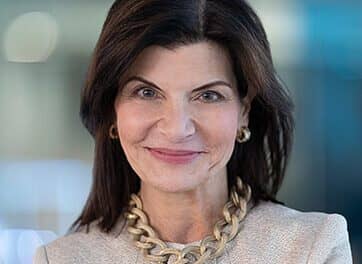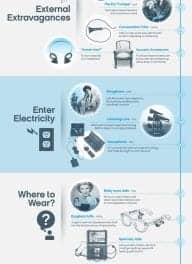Not so long ago, if you would have told Ed McNally that one day he’d be shipping stem cells, bone tissue and tendons instead of documents, he would probably have questioned your sanity.
"Twenty years ago, almost all we shipped was legal documents, the regional vice president of Quick International said on a tour of a company facility in suburban Chicago. "But e-mail and medical advances totally changed our business."
Quick operates in a niche market by providing a high-cost, round-the-clock, hands-on express package delivery service using commercial passenger airlines. The New York-based company ships anything from test samples for drug manufacturers to crucial replacement machinery parts for factories.
The other major niche player is Stamford, Connecticut-based World Courier Inc. The company, which like Quick is privately owned, provides similar services for a range of industries such as "biomedical" and automotive.
The giant express package companies — United Parcel Service Inc., FedEx Corp. and Deutsche Post’s DHL unit — all have small units that to one degree or another operate like Quick or World Courier. But most of their business is based on pick-up and delivery within set times.
Quick didn’t provide specifics on pricing, but McNally said the company could easily charge $200 to ship a package that might cost $20 to send through a conventional express service.
"If companies use our service, it’s because they have a clear and pressing business reason to do so," he said.
Investors say niche operators like Quick can expect solid growth in years to come, but add that the potential of this service for big operators is limited by its high cost.
Chief Executive Rob Mitzman said when he founded Quick in 1981, its main focus was delivering legal documents, but the arrival of e-mail all but killed that business in the 1990s.
For a typical example of a Quick customer today, McNally holds up a stem-cell box kit with a picture of a staring child with brown hair and bright blue eyes. The brand name on the box is ViaCord, a unit of biotechnology company ViaCell Inc.
ViaCord is one of more than 25 companies, including Celgene Corp.’s LifebankUSA, that offer to store blood from umbilical cords, whose stem cells can be used to treat leukemia and other blood disorders. ViaCord stores these cells for parents for as little as $40 a month — it can freeze them for at least 15 years — in case someone in the family succumbs to just such a disorder.
"Within 48 hours (of birth) cells start to die," said Nadia Altamore, ViaCell’s senior director of patient services. "Babies arrive 24/7, and we need superior on-time performance."
Quick expects "life sciences" — in other words, companies that, like ViaCell, use the latest medical advances — to account for about 60 percent of the $150 million in revenue that it has forecast for 2007.
MATTER OF LIFE AND DEATH
From the time the facility that McNally runs in Schiller Park receives an order for a package, the staff monitors it until delivery. Employees watch the weather and flight schedules on computer screens and, in the event of problems, reroute the package to make sure it arrives on time.
Unlike the typical express services of major delivery companies like UPS and FedEx, which have set pick-up and delivery deadlines for their own fleets of jet aircraft, Quick uses commercial airlines with flights throughout the day.
In some cases, such as for drug trials by pharmaceutical companies, Quick has a courier accompany the package on the flight, keeping it in sight at all times. The customer also receives e-mail alerts at each stage of the journey.
"Communication is key to us as we absolutely rely on Quick to get our donor materials to Denver in a timely manner," said Tom Cycyota, chief executive of Centennial, Colorado-based AlloSource.
The nonprofit organization takes skin, tendons and bone tissue from cadavers for operations that range from replacing torn tendons to treating burn victims. "For lifesaving operations, we need Quick to be there," Cycyota said.
It’s not just health-care-related packages that need to move fast.
McNally recalls how in the aftermath of the massacre of 32 people at Virginia Tech in April, television crews sent camera equipment down to Virginia via Quick.
Even though he’s a senior manager, his passport is always to hand in case he must fly with a package abroad. "If you’re the last one here, you have to go," he said.
Among Quick’s rivals, UPS has a small unit called SonicAir, while DHL has a Same Day service. Both pick up and deliver packages round-the-clock, at a hefty premium. FedEx has its FedEx Custom Critical unit, which does not handle small packages but moves freight by truck using the same principle. The three companies and World Courier say they do not disclose the revenue of these services.
Portfolio manager Tom Leritz of Clayton, Missouri-based Argent Capital Management, which manages assets of $920 million, sees this business remaining a small, but high-margin one for the big shippers. "Most package needs just aren’t that urgent," he said.
But he added: "This is an exciting area with good growth potential for a small niche operator."



